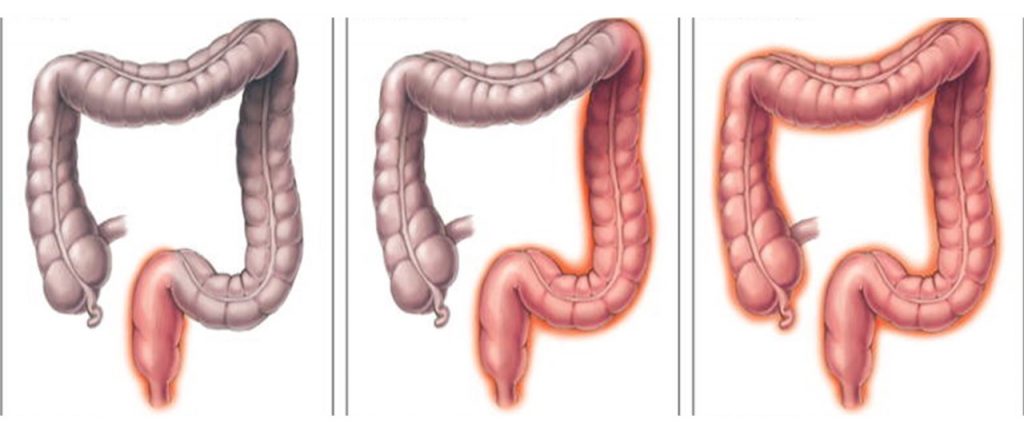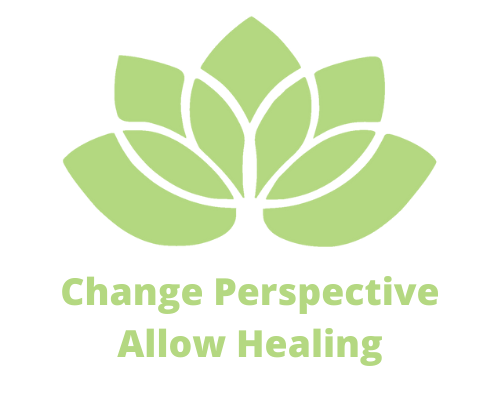Conventional medical classification
Ulcerative colits (UC) is a (chronic) inflammatory disease of the large intestine, which manifests primarily with -partly bloody- diarrhea and sometimes severe pain. The cause has not yet been clarified by conventional medicine. The incidence is increasing sharply, especially in the western industrialized countries. The highest disease rates are observed in Northern Europe with about 25 new cases per 100,000 inhabitants. In addition, it has been shown that lifestyle and diet play an essential role in the development of this disease. Observation indicates that the children of immigrants from low-incidence areas carry the same risk of developing it as residents from high-incidence areas. Although a familial accumulation can be observed in about 8-14%, there are no clear patterns of heredity or distinct gene loci. The emergence of a UC is preceded by a change in the mucosal cells of the large intestine. As a result, the immune defense of this organ is disturbed, which subsequently leads to the typical ulcerative inflammation. Despite these findings, it is not an autoimmune disease.

In many cases, there is a colonization with pathogenic intestinal germs (so-called dysbiosis). Whether these are triggers or consequences of the disease, or are responsible for an unfavorable course or severity, is still unclear. However, colonization with Clostridium Difficile is considered a risk factor for relapses and severe courses.
In conventional medicine, 3 different types of a UC are distinguished depending on the affected area of the large intestine. Accordingly, different symptoms can then be predominant. In the case of isolated inflammation of the rectum (so-called proctitis), there is an accumulation of painful urge to defecate (tenesmus).

With increasing expansion to larger parts of the large intestine, spasmodic pain and bloody bowel movements increase. Interestingly, there may also be intermittent episodes with constipation. In addition to the organ-related symptoms mentioned, patients with the UC also show inflammatory changes in the vascular system, bile ducts or joints.
Ayurvedic classification
Ayurveda clearly describes diseases that resemble the symptomatology of a UC or other inflammatory bowel diseases, such as Crohn’s disease. Irritable bowel syndrom (IBS) is considered to be part of this spectrum. Ayurveda is very much oriented towards the prevailing symptoms in the classification and the later therapy; depending on whether spasmodic pain, watery or bloody diarrhea or whether constipation is also present. In addition, concomitant symptoms such as nausea, vomiting, fever, pronounced fatigue are also decisive for the classification and the therapy for relief or cure. This distinguishes Ayurveda from conventional medicine.
.
Ayurvedic treatment approach
In Ayurveda, as well as in modern conventional medicine, lifestyle and environmental factors are held responsible. In contrast to conventional medicine, Ayurveda does not treat only in an anti-inflammatory or immunosuppressive manner, but to analyze very precisely which living conditions on the one hand and which aspects of the psychological and mental condition have contributed to the disease. In addition, Ayurveda aims to remove substances that have been deposited in the body (sometimes for decades) due to unfavorable lifestyles (so called ama)and at the same time to strengthen the body’s defenses. This is done among other measures by activating the digestive and transformative fire called agni.
However, the treatment strategy is always very individual and takes into account the predominant symptoms, side effects and also the individual constitution of the patient. Of central importance is the mental and emotional situation of the patient level and a sensitive accompaniment. This takes into account that Ayurveda attributes a prominent role to psychological and mental factors, especially in the development of diseases or discomforts of the gastrointestinal tract.
The aim of my treatment is to gradually taper off an existing conventional medical therapy, for example with mesalazine, sulfasalazine, cortisone or the so-called biologics, or to avoid surgical intervention in any case. In doing so, I always include conventional medical diagnostics. The personal feeling and the physical situation are always decisive. It is about jointly recognizing the “disease-causing factors” and thus realizing a new, more beneficial lifestyle and dietary behavior. This is the prerequisite for healing.
If you have any questions about this or similar diseases, my expertise, my treatment approach or basic questions about Ayurveda, please talk to me in a free non-binding telephone call. Kindly book here or send an e-mail to info@ayurveda-portugal.com

